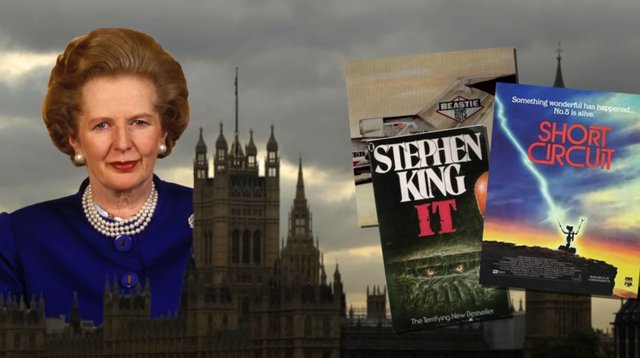Natural Monopoly
We all know what a monopoly is; it's when a single company dominates a market, enabling it to set their own prices without having to compete. So, what's a "natural" monopoly? Or rather: is there anything else than natural monopolies under capitalism?

source: YouTube
Natural monopolies are the reason why privatization of electricity and gas has failed, along with things like rails and trains. Consider the transmission- and distribution grids for gas and electricity: these are vast, complicated networks of pipes, tubes, cables, wires, transformation stations and depressurization facilities, through which electricity and gas travels from the generation and production plants to your home. Since gas and electricity are vital utilities on which we all depend in our daily lifes, it's only natural that these distribution networks are operated and maintained by a single owner. The government preferably, because these utilities are much more than just another commodity; they're essential, sort of a human right.
To privatize these networks, to open them up to free market competition, would mean that there are multiple networks, which is impractical. Not only that, it would be so expensive and would cost so much time, that no private company would even contemplate venturing into that endeavor. So, here's a natural monopoly that was owned by the government before the neoliberal frenzy of the privatization of everything. I've recently watched a video about the history of the privatization of these utilities in England and Wales, and it showed that gas- and electricity prices went down every year until they were privatized: since extracting a profit became the first priority, and since competition is all but impossible in these sectors (they're a natural monopoly after all), price-gauging became the order of the day, and prices started to rise. You can watch that video here, and I recommend you do that.
However, under capitalism, simply due to its fundamental rules and mechanisms, everything eventually becomes a monopoly, absent hefty government regulation. The process of elimination through competition and mergers naturally leads to just a handful of companies left standing in any market segment. There's a handful of candy producers, a handful of media companies, a handful of news producers, a handful of clothes manufacturers and so on, and these companies negotiate prices among themselves. Wasn't it Zuckerberg who said: "It's better to buy than to compete"? Why compete with Instagram, which would necessitate making our own version of it, when we can simply buy it? Monopolies are the natural end-state of capitalism, and they're everywhere now.
Even the internet, which was originally hailed as a liberating force for artists and the news, has now been taken over by this natural force of capitalism. It's widely known how musicians were screwed over by the record labels; they's receive pathetic royalties, literally cents on the dollar, for the sales of their albums and CD's. The artist would receive an advance for the costs of recording, producing and living during the creative production of an album, after which the label would press and distribute the digital or analogue copies of that work, allowing the artist to generate an income. Since, in the age of the internet, physical copies aren't necessary anymore, these artists would finally be freed from this yoke... But then came Spotify... And Spotify is owned in a large part by those old record labels. This is a case of a monopsony; that's when there's a single, or just a handful of buyers instead of a single seller.
Capitalism is the game of concentration, concentration of wealth and power. Any freedom-loving soul should therefore oppose it. Sure, you can say that concentrated political power is just as bad as power concentrated on for profit corporations. But that's missing one important point: the government doesn't have to make a profit. And the government is, ideally, voted in democratically and works for the people. Again, ideally. Corporations don't; they have but one objective, and that is profits. Pleas watch the below linked video, which is about the monopsonies in the creative industries and other "choke-points" in our capitalist economy.
Chokepoint Capitalism Explained | Cory Doctorow | TMR
***Important!! Please read.
It's Sunday, and I found a couple of hours for myself today; so there's a post today as well :-) Like I said a couple of days ago, my posts will be few and far between for the coming weeks or maybe months. I hope I'll be able to return to my regular schedule of one post every day sooner rather than later. Thanks so much for bearing with me!***
Thanks so much for visiting my blog and reading my posts dear reader, I appreciate that a lot :-) If you like my content, please consider leaving a comment, upvote or resteem. I'll be back here tomorrow and sincerely hope you'll join me. Until then, stay safe, stay healthy!

Recent articles you might be interested in:
| Latest article >>>>>>>>>>> | Winners & Losers |
|---|---|
| Hating Kids | Who You Are |
| Here Comes The Boss... | Carbon Propaganda |
| Creativity Killer | Online Truman Show |

Thanks for stopping by and reading. If you really liked this content, if you disagree (or if you do agree), please leave a comment. Of course, upvotes, follows, resteems are all greatly appreciated, but nothing brings me and you more growth than sharing our ideas.